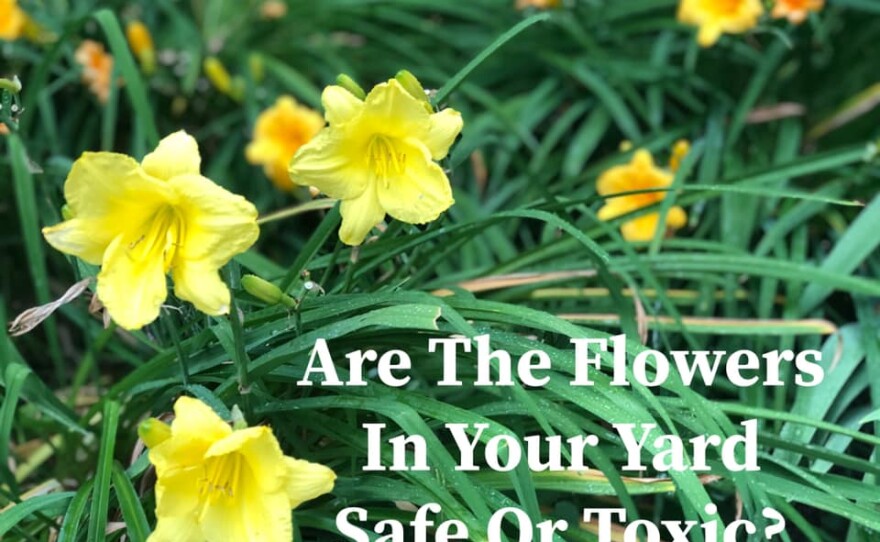Summer means longer days and more time outside, especially for gardeners and their children -- and gardeners who are children. But where do you turn to find out if a plant could cause problems for them?
Since the onset of the pandemic, people of all ages are gardening more than ever. Carol DesLauriers is the leader of the Illinois Poison Center. She said it's important to know the number of the hotline.
"I encourage everyone to put our phone number, which is 1-800-222-1222, in your phone," she said. "Call us anytime for any exposure -- or even suspected exposure -- to any potentially harmful substance." They are open 24 hours a day, seven days a week and are staffed with knowledgeable health professionals.
DesLauriers also said it's important to know the names of the plants in your yard (and in your home) in case you ever have to call the IPC. "It goes a lot faster," she said "if we know the name of the plant."

Pokeberry is the summer plant that is ingested the most and children age 18 months through two years of age are the age group most likely to ingest. DesLauriers said, "We get a lot of calls about kids eating the berries from pokeberry."
What's a pokeberry?
"They kind of look like blueberries," she said. "When they are unripe, they are kind of pinkish purple. When they are ripe, they turn a deep, dark bluish -- almost black [color] -- and they're everywhere."

But pokeberry is not the only harmful plant lurking in your yard.
"The foxglove has effects on the heart," she said. "In fact, if you've ever heard of the drug digoxin, it comes from that plant."
Digoxin is used to treat congestive heart failure and atrial fibrillation. But when a small child eats enough foxglove, they have swallowed "digitalis." That's a toxin that can cause your child to feel and act confused, and it will slow down their heart rate.
Other seasonal plants that can harm your child include larkspur, which is also known as delphinium. Every part of the plant is toxic, especially its roots and seeds. If enough of the plant is swallowed, a child may go from experiencing nausea and vomiting to having muscle weakness, paralysis and abnormal heart rhythms.
Cotoneaster sounds harmless and its bright berries may look like candy, but they contain cyanogenic glycosides, which the human body breaks down into cyanide. Very toxic.
Allium, which is wild onion or wild garlic, is a little more mild, but can upset the stomach.

Unripe tomatoes can cause throat irritation, nausea, vomiting, diarrhea, and drowsiness.
Black-eyed Susans can irritate your child's skin upon contact.
If you use insecticides, pesticides or fertilizer in your yard, they won't necessarily make your flowers and plants more toxic, but, DesLauriers said, "If you use pesticides on your plants, and the plant is still wet with the pesticide when it's been ingested, you would have the pesticide exposure on top of a potential plant exposure."
If you see your dog eat a plant and you are worried, DesLauriers said don't call the IPC. "For pets, we recommend people call the ASPCA Animal Poison Center," she said. "That's in central Illinois and they can be reached at 1-888-426-4435."
Still, DesLauriers doesn't want anyone to feel shy about calling the IPC. "Everyone's heard the old adage 'There's no such thing as a silly question,'" she said. "That's definitely the case for the Poison Center. We always want people to err on the side of calling us."
It's important to be careful, but it's also important to know that not all plants are out to get you. Daylilies, lungwort, coneflowers, geraniums and petunias are child friendly and will attract birds, bees and other pollinators.
Summer is the busiest time of the year for the Poison Center, but DesLaurier said there were no reported deaths of children or adults from ingesting plants or flowers in Illinois last year.
Remember, if you see or suspect your child of ingesting a harmful plant or substance, call the hotline at 1-800-222-1222. To see a complete listing of summer plants with photos, visit the IPC blog.






